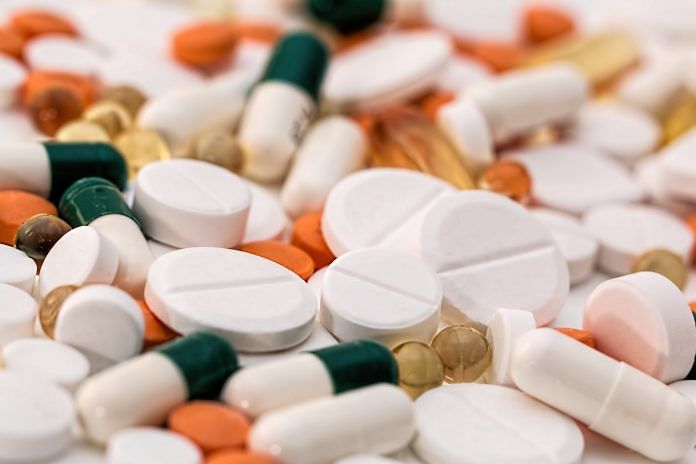New Delhi: Prime Minister Narendra Modi’s flagship scheme, Pradhan Mantri Bhartiya Janaushadhi Pariyojana (PMBJP), which aims to provide quality generic medicines at affordable prices in place of branded medicines, has worked well only in five states across the country.
According to a two-page letter written by Amitabh Kant, Chief Executive Officer of NITI Aayog, the five states of Karnataka, Uttar Pradesh, Kerala, Tamil Nadu and Gujarat account for over 70 per cent of the sales of medicines under the scheme.
“Only around 15 per cent of the stores are operating effectively, in terms of achieving the break-even threshold of Rs 2 lakh sales per month,” reads the letter that was written on the basis of an analysis by NITI Aayog.
The letter dated 23 April, which has been accessed by ThePrint, has been sent to the Department of Pharmaceuticals (DoP), which heads the scheme, and its implementation agency, the Bureau of Pharma PSUs of India (BPPI). The DoP comes under the Ministry of Chemicals and Fertilizers.
The DoP and the BPPI could not hold a meeting with the NITI Aayog soon after the letter was sent because of the 2019 Lok Sabha elections being conducted during the time.
“The analysis highlights the scope of making improvement in the scheme. However, since the elections were ongoing and the PMBJP was one of the government’s flagship schemes, we didn’t think it right to hold discussion that time,” said a senior DoP official, who did not wish to be named.
The official said a meeting will be held shortly.
Over 5,000 pharmacy stores across the country
In the letter, NITI Aayog hailed the scheme for selling medicines at ‘Jan Aushadhi Kendras’ (public pharmacy outlets) at prices less than 50 per cent — the margin originally set — of those available in the market.
The letter also mentioned about the phenomenal rise in the total number of outlets under the scheme across the country. At present, there are over 5,000 ‘Jan Aushadhi Kendras’.
However, it stated that increase in the number of pharmacy outlets would not help in boosting the sale of medicines.
“The study has identified concerns such as volume of sales in aggregate is yet to rise commensurate with growth in physical network,” the letter stated.
The scheme, which was started by the second Congress-led United Progressive Alliance government, was considered a ‘sick’ scheme as it failed to achieve its objectives. The scheme only saw 100 pharmacy stores across the country in 2014. But, when the Modi government came to power that year, the scheme got a new life.
The recommendations
The think-tank provided the DoP a list of recommendations to improve the effectiveness of the scheme.
It suggested that the stores must be rewarded or graded on the basis of their performance and “each store should undergo assessment through a structured performance scorecard.”
It also recommended increasing the profit margin of store owners to make their business lucrative. At present, an operating agency is provided 20 per cent profit margin on MRP (excluding taxes) of each drug. NITI Aayog suggested that “there is a case for considering an increase in the margin allowed on sales to the retail PMBJP stores from 20 per cent to 30 per cent”.
It also recommended increasing awareness about the scheme among doctors and patients.
‘Build confidence of target customer’
Expressing concern over the stagnation of sales and limited impact of the scheme, the letter stated that the supply chain should be augmented “in accordance with the needs of 5,000 outlets strong network”.
It also identified an action plan focusing on “predictive demand forecasting” and “bringing in quality as a gating item”, among others.
“Stricter quality criteria and monitoring thereof can raise the bar, which will help in building confidence of target customer,” the letter said.
Also read: Once looking to clip NPPA’s wings, govt now plans to give drug price regulator more power



